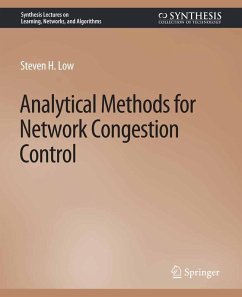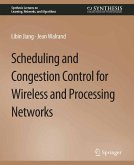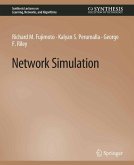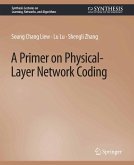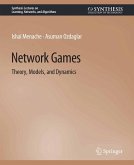The congestion control mechanism has been responsible for maintaining stability as the Internet scaled up by many orders of magnitude in size, speed, traffic volume, coverage, and complexity over the last three decades. In this book, we develop a coherent theory of congestion control from the ground up to help understand and design these algorithms. We model network traffic as fluids that flow from sources to destinations and model congestion control algorithms as feedback dynamical systems. We show that the model is well defined. We characterize its equilibrium points and prove their stability. We will use several real protocols for illustration but the emphasis will be on various mathematical techniques for algorithm analysis. Specifically we are interested in four questions: 1. How are congestion control algorithms modelled? 2. Are the models well defined? 3. How are the equilibrium points of a congestion control model characterized? 4. How are the stability of these equilibrium points analyzed? For each topic, we first present analytical tools, from convex optimization, to control and dynamical systems, Lyapunov and Nyquist stability theorems, and to projection and contraction theorems. We then apply these basic tools to congestion control algorithms and rigorously prove their equilibrium and stability properties. A notable feature of this book is the careful treatment of projected dynamics that introduces discontinuity in our differential equations. Even though our development is carried out in the context of congestion control, the set of system theoretic tools employed and the process of understanding a physical system, building mathematical models, and analyzing these models for insights have a much wider applicability than to congestion control.
Dieser Download kann aus rechtlichen Gründen nur mit Rechnungsadresse in A, B, BG, CY, CZ, D, DK, EW, E, FIN, F, GR, HR, H, IRL, I, LT, L, LR, M, NL, PL, P, R, S, SLO, SK ausgeliefert werden.

